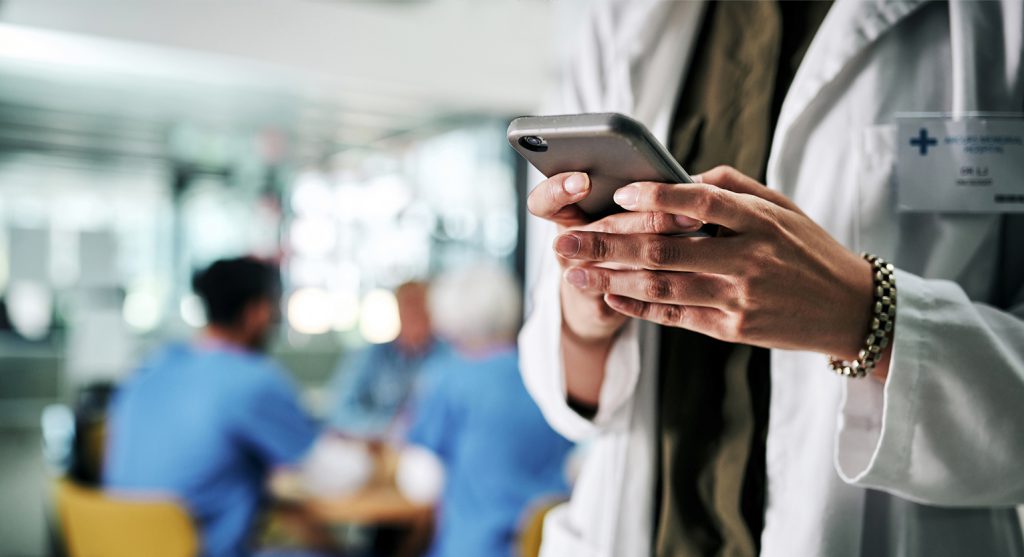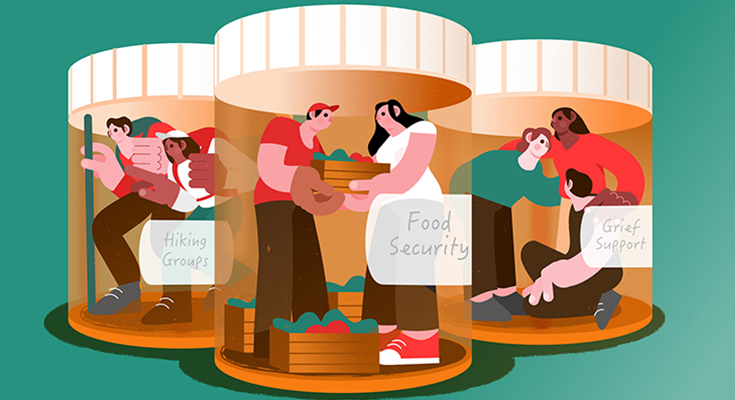
New program aims to foster connections between physicians
When it comes to tending to your mental health, peer support can be helpful beyond measure. After all, few can appreciate the profession’s unique stressors and challenges like another physician.
And, through its newly launched Peer Support Program, the Ontario Medical Association (OMA)’s Physician Health Program (PHP) has already begun helping to facilitate peer support connections between doctors.
The program, launched in April, is part of PHP’s broader efforts to provide medical professionals with greater access to a range of confidential supports and stronger social networks.
The training and culture of medicine has long told physicians that to succeed, they need to detach and push through. It takes a toll, one that only another physician can understand.
That shared history creates a connection key to the success of peer support programs for physicians, said Ted Bober, Director of Clinical Services of the PHP.
“Peer support is an easy door to open.”
Family and friends might sympathize with the challenges of working in an over-stressed, under-resourced system, but only a peer would understand the depth of responsibility physicians carry each day. “Physicians are just more comfortable speaking with a peer – they don’t have to worry about being labeled or pathologized. Peer support is an easy door to open,” says Mr. Bober.
Jordanna Graves, a Clinical Coordinator for PHP, understands the power of peer connection. When a physician who is feeling isolated and overwhelmed contacts PHP, she provides reassurance that help is available, but she says those same reassurances land much differently when a doctor hears it from a fellow physician. “There is so much more value from hearing a peer say that they got the help they needed, and things got better.”
The nature of the conversations in a formalized peer support program, such as this one, is different than the discussion a physician might have with a colleague encountered in the hospital corridor, said Beth Collison, a Clinical Coordinator with PHP. Such a conversation might see a well-meaning physician minimize their friend’s pain or try to “fix” the problem. In contrast, peer supporters empathize and validate what the physician is experiencing.
Over the last year, PHP has provided training to physicians participating as Peer Supporters during these intentional conversations. Such training hones the Peer Supporters’ helping skills and ensures they don’t step into the role of a treating physician.
Mr. Bober says he is encouraged by the number of organizations and academic centres that have developed peer support programs for physicians. These kinds of empathic, non-judgmental discussions between peers are a welcome cultural shift, he said. “I think the compilation of all these one-on-one conversations has the potential to build cohesion and a culture of care among physicians.”
Learn more about PHP’s Peer Support Program by emailing [email protected] or calling 1-888-851-6606. Inquiries about peer supporter training can be directed to Jordanna Graves and Beth Collison with the PHP Peer Support Team at [email protected].





